I have read that anyone can learn to play guitar, and this is true. For some players, it comes more naturally than to others. But no matter to which of the two groups you belong to, these guitar playing tips will make your beginning a lot easier.
Music games like Guitar Hero teach rhythm and are good at exposing the guitar player to-be to the feeling of being in sync with the flow of a song. Although, actually playing guitar is very different from these kinds of games. I think that some people are born with a predisposition to music, and have a faster ability to absorb music, and technique. While others learn to play at a slower pace.
I play the guitar for as long as I can remember, and I am basically self-taught. I’ve learned some very valuable lessons from the trial and error approach, that I first used when trying to learn how to play guitar. I have taught these guitar playing tips to others, who have learned to play guitar, and have continued to improve and play on their own.
Table of Contents
Guitar Playing Tips
Here are some very basic tips and ideas that can help almost anyone learn how to play guitar.
1. Take Things Easy
First of all, think simple. No one can just pick up a real guitar and start playing it. It takes time, determination, and patience. If someone has the mindset that they can just pick up a guitar, and play it. This person will give up or become frustrated.
2. Buy Your First Guitar Wisely
Buy an affordable guitar, but not the cheapest guitar in the store. Some teachers recommend buying an acoustic because it’s more practical, but I think that the best guitar you can buy is the one you’ll play the most. Invest some time in learning the different types of electrics and acoustics and find the one you really want.
Before you go to the store, read about how to buy your first guitar, and don’t worry too much if the guitar you ended up wanting is slightly over your budget; with a bit of negotiation you’ll be able to get it for the right price.
3. Only Upgrade When You Need To
If you are playing your first guitar you don’t need an amp that costs four times as much as it! If you don’t gig, you need little more than a practice amp. Once you start to play a show or two you will want an amp that gives you a little more of a serious output. Then you can start to think about upgrading.
The same goes for a guitar and fancy effects pedals. If you can’t play the guitar, a $4000 razorback, a marshal stack, and 30 pedals won’t make you sound any better. Concentrate on your techniques and keep the money in your bank account, for now!
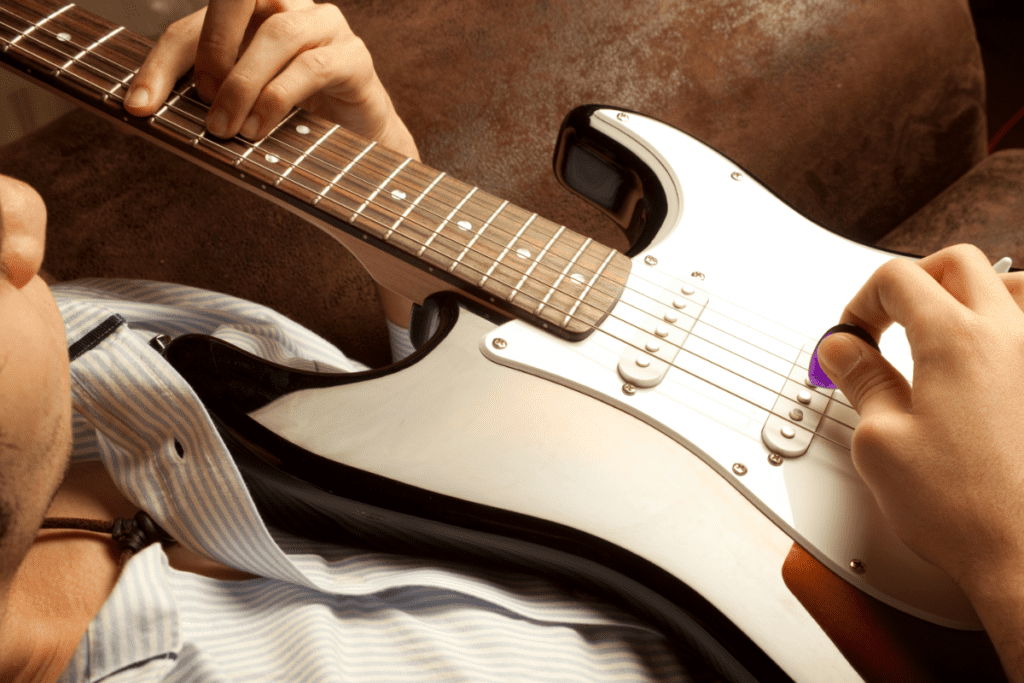
4. Light Gauge Strings are Easier to Start With
Put light gauge strings on the guitar. This would make it easier to get out a good clear sound quicker, and easier when learning to press the strings.
5. Choose the Right Pick
Choose a pick that’s good for strumming. No one needs a pick designed for lead when you learn your first song. When you start to build a wider repertoire, consider trying different types of guitar picks to see which fits your personal style better.
6. Hold the Pick Properly
Learn how to hold the pick. Holding the pick correctly is the first step in having the right strum and creating the right sound.
7. Always Play With a Tuned Guitar
Learn how to tune a guitar, and make the best effort to always play with a properly tuned guitar. You don’t want to get used to the sound of an out-of-tune guitar. I’d go even a step further and choose a tuner that fits the way you plan on practicing, just to make it more seamless.
8. Get a Reliable and Structured Source of Information
Obtain a simple and easy guitar book with basic chords, or have someone that knows how to play, show you the basic chords.
9. Arch Your Fingers Properly
Learn how to press the strings to make the appropriate sound by arching the fingers. It sounds simple, but it is worth the extra time to get it right. It will be a lot harder to fix a bad habit later on.
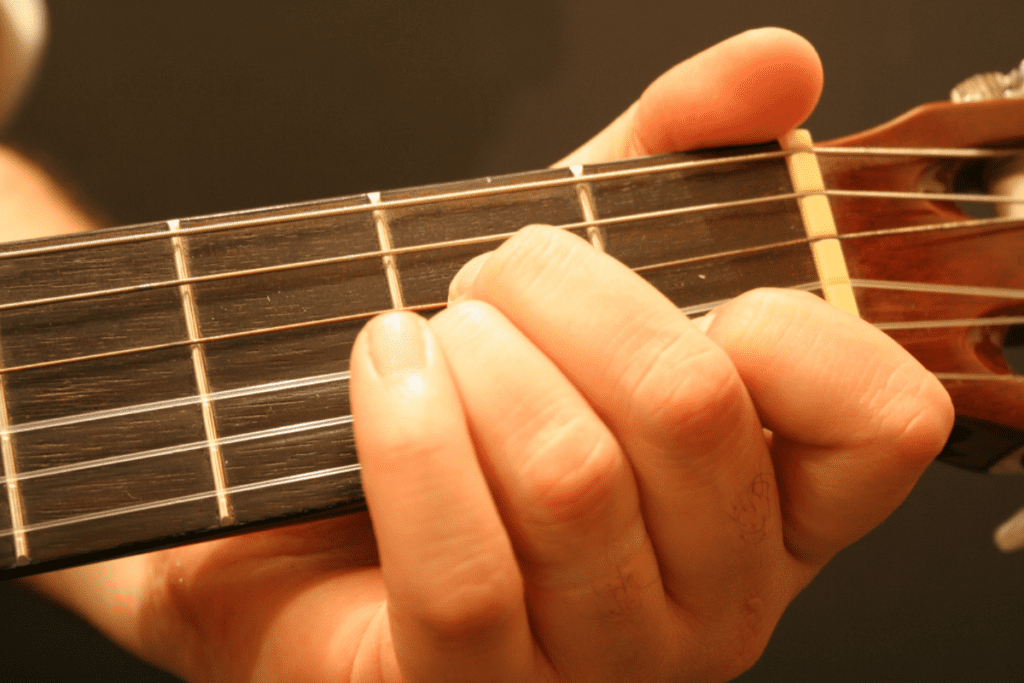
10. Start With a Simple Song
Any guitar player needs to know a few chords. If you want to learn guitar, you should too. Even if you just learn the shapes and the names, you don’t have to know the formulas or the construction. Chords will get your ears tuned in to a specific key sound, they will allow you to develop a sense of what sounds good and what sounds bad. Chords are essential to songwriting. With three or four chords you can learn a lot of songs. Impress your friends, start with Am, C, D, and G!
When I learned to play, I bought a chord book that I really can’t recommend enough: Guitar Chords by Mel Bay. It is the most comprehensive chord book I’ve read, and really gives you a good base for chord theory (which is not particularly difficult to understand but nevertheless vital in the learning process). Learning to play the guitar starts with a good foundation of chords.
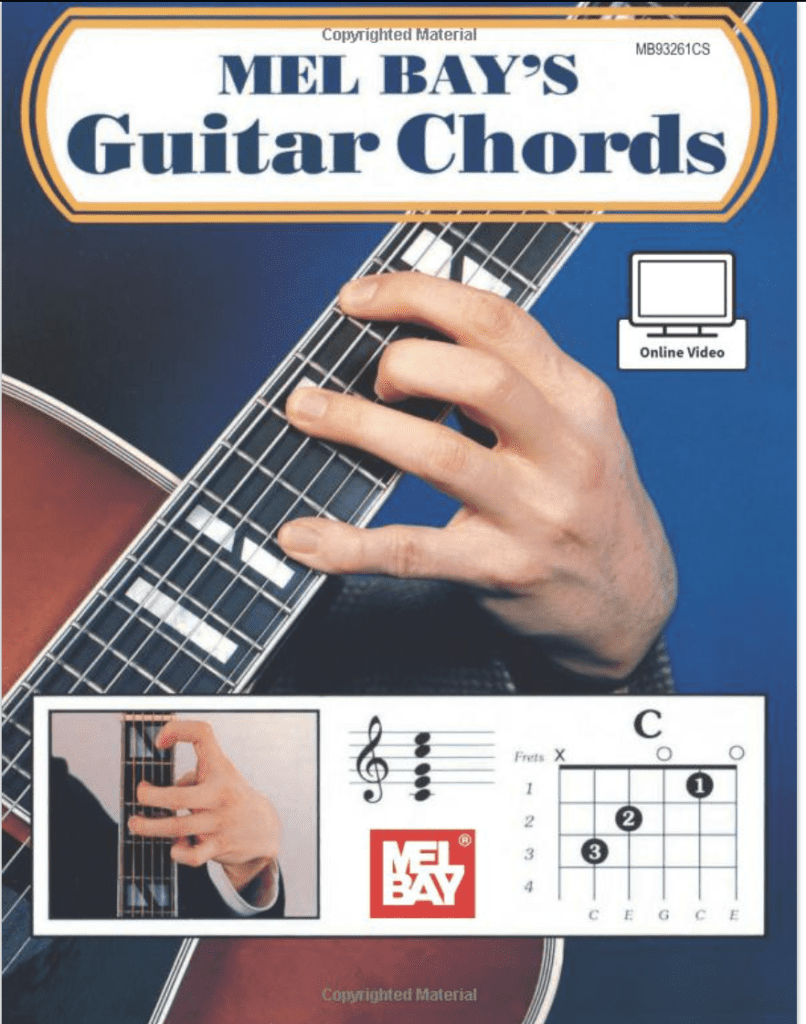
11. Learn Guitar Tabs
Tabs (or tablature) are a simplified version of standard notation for guitar (and other instruments, such as bass guitar, ukulele, banjo, and more). They are super easy to learn and extremely useful. I wrote a guide about reading guitar tabs.
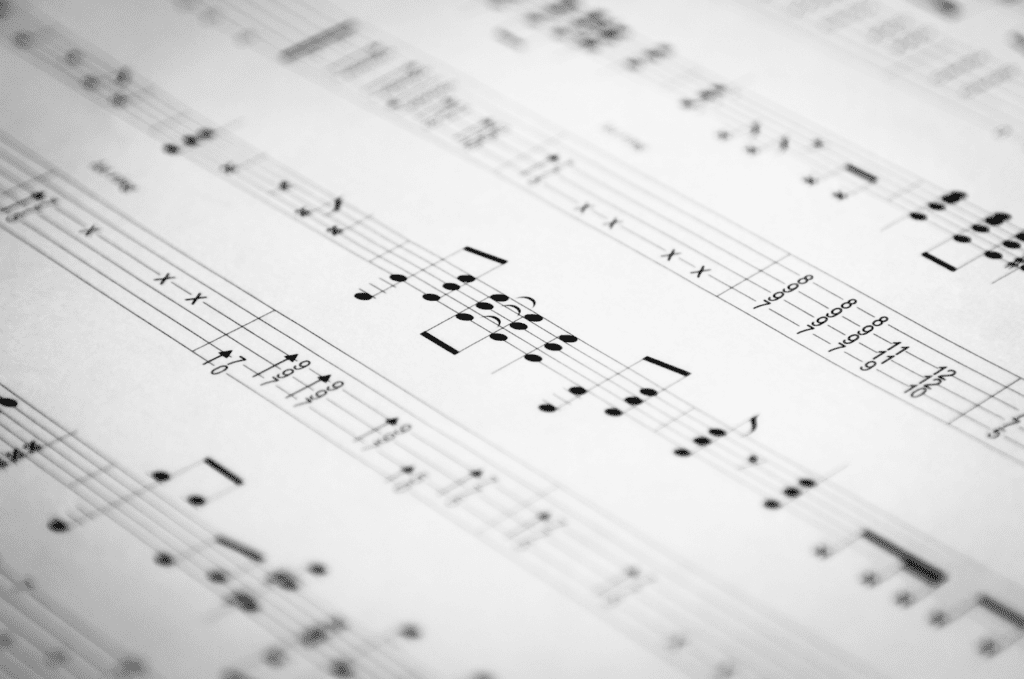
12. Practice With a Metronome
Always, always, always practice with a metronome. I’ll say it again: practice with a metronome! This guitar playing tip alone can double the pace at which you progress.
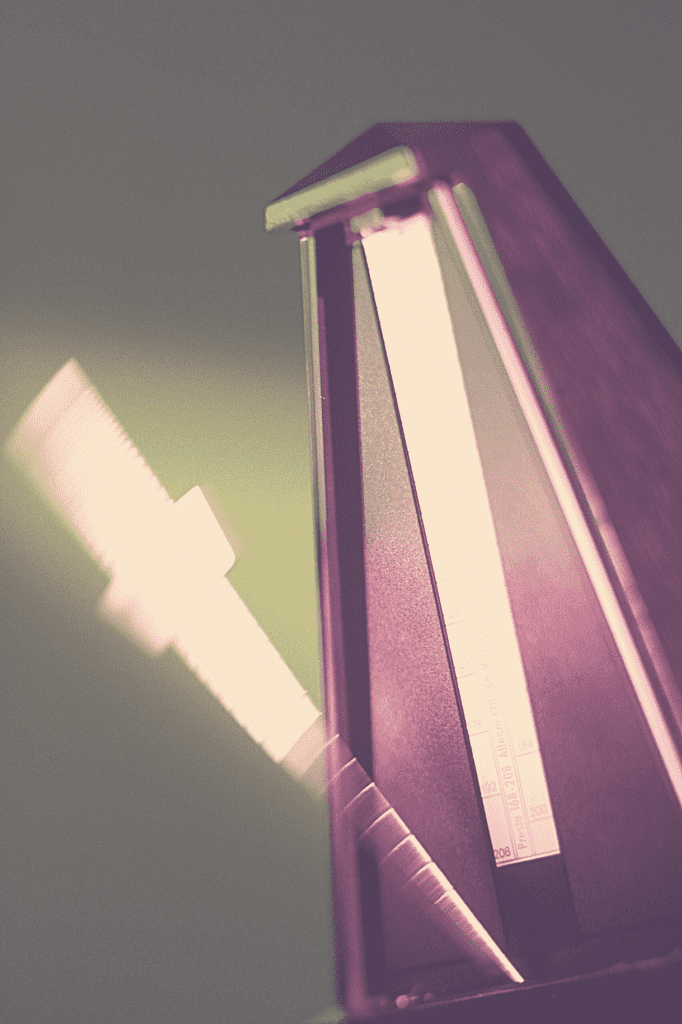
13. Practice Standing Up
There are countless guitar players who can barely play standing up because they used to practice sitting down. This is one of these bad habits you want to avoid because fixing it could take years. Just buy a guitar strap and learn to wear it properly. Get some strap locks while you’re at it.
14. Don’t Limit Yourself to One Technique
Having the ability to play both with a pick and play fingerstyle from the beginning is a great advantage and will allow you to play any song. Other important techniques to learn are: Alternate Picking, Hybrid Picking, Economy Picking, and later on, Sweep Picking. These are great skills to have in your arsenal. And the majority of them are a lot easier to learn in the beginning than later on after you got used to playing in a certain way.
15. Memorize the Fretboard
This is one of the most important guitar playing tips I can give you. Learn the fretboard and where they are in relation to the other notes. This will allow you to play more fluently and remain in key. Your playing will always sound on the button and you will be able to write music and jam with others more effectively. Check out this article I wrote about memorizing the fretboard.
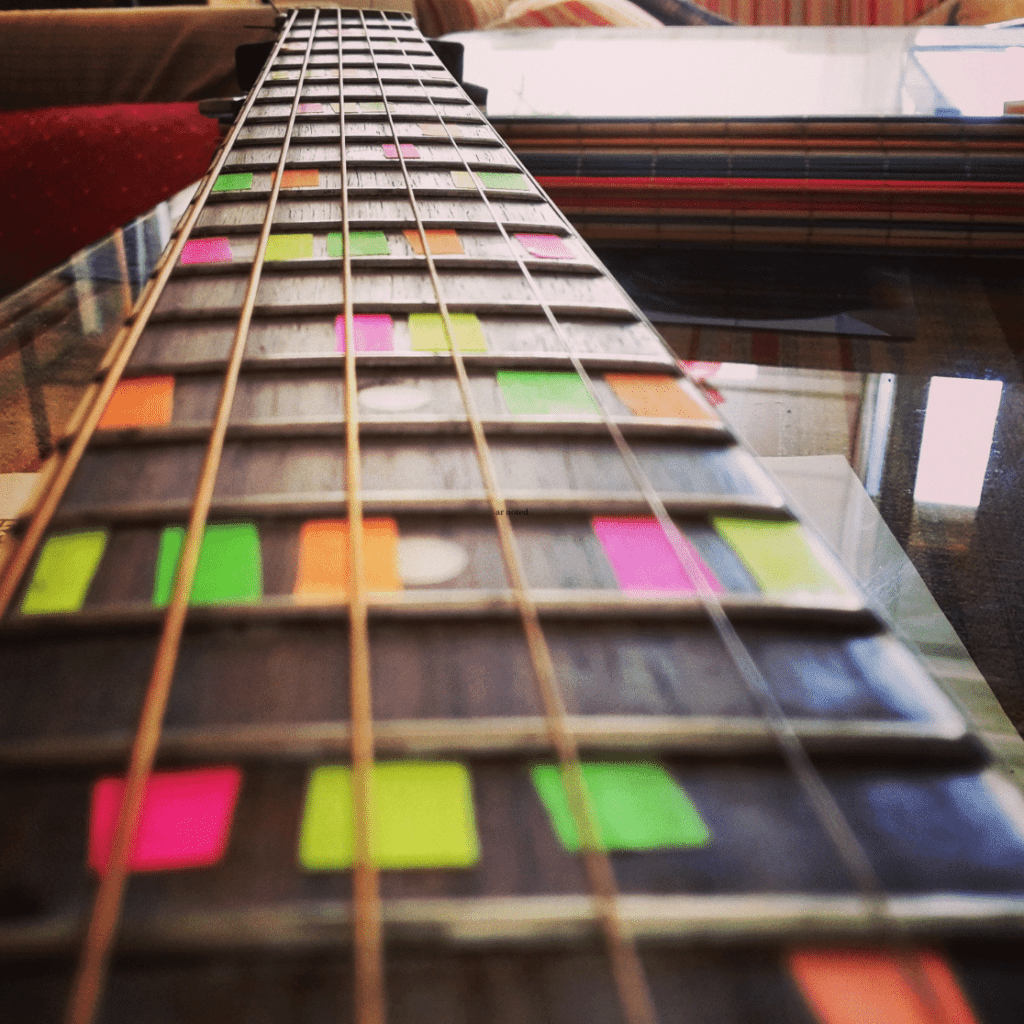
16. Record and Listen to Yourself Often
It’s harder to hear your mistakes while playing, a recording is very useful in finding where to focus in your practice routine. Here are 2 guides for recording:
17. Learn Some Scales
Guitar scales are the foundation for (almost) every song. The major scale is the most common one and is estimated to be used in more than 80% of the songs you hear. Learn a few scales, play some solos, understand why they sound the way they do. It sounds a lot harder than it is. Check out this article to learn guitar scales.
18. Practice Every Day
Many short practices are more valuable than an extremely long session every few days. Check out my guide for a recommended guitar practice routine for more information and advice.
Finishing thoughts
These guitar playing tips won’t make you the new Hendrix, but they’ll make you learn the first couple of songs a lot faster. It’ll also help you build better habits, so you won’t have to “unlearn” them after you got used to playing in a certain way.
The hardest part for most beginners is pressing on the strings, to get the sound of the chords by raising the fingers in an arch. take your time in finding a good posture, and don’t rush it. Anything hurried or rushed causes frustration, and stops the natural flow of the music. And this is very needed in order to become a good guitar player.
If you have other guitar playing tips that I didn’t think about, feel free to post them in the comments, I’d love to hear what you got to say!